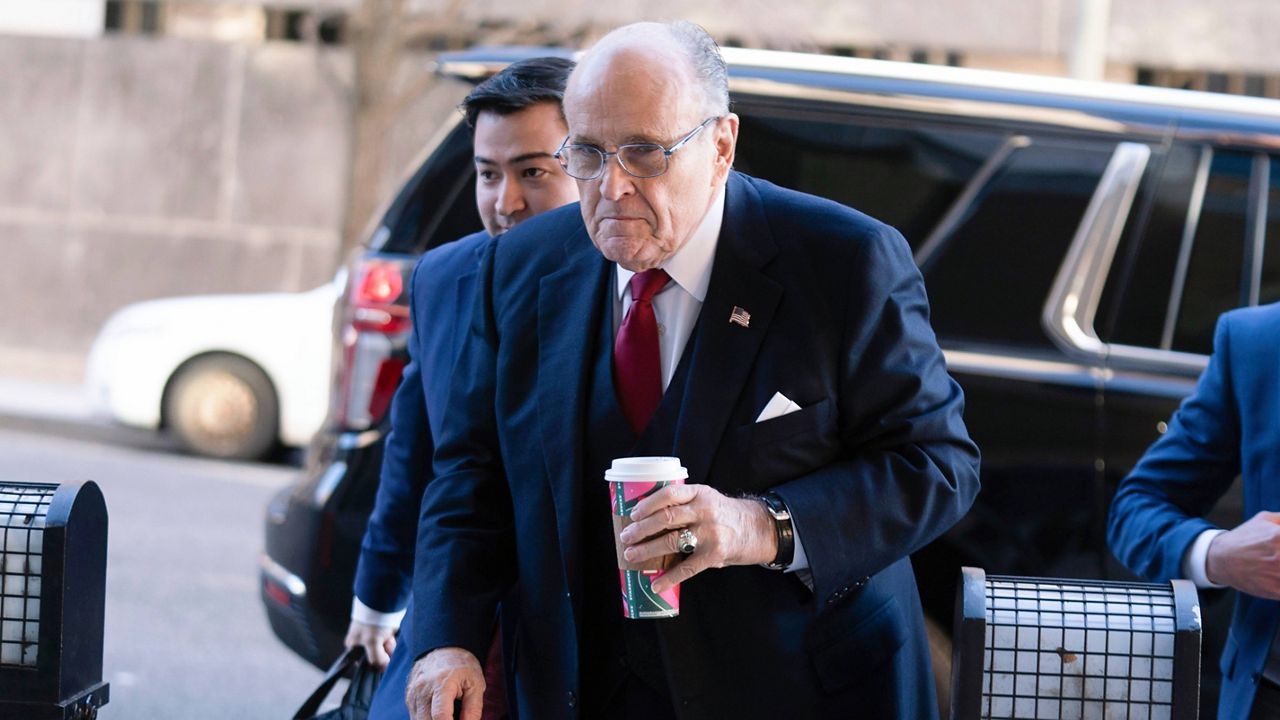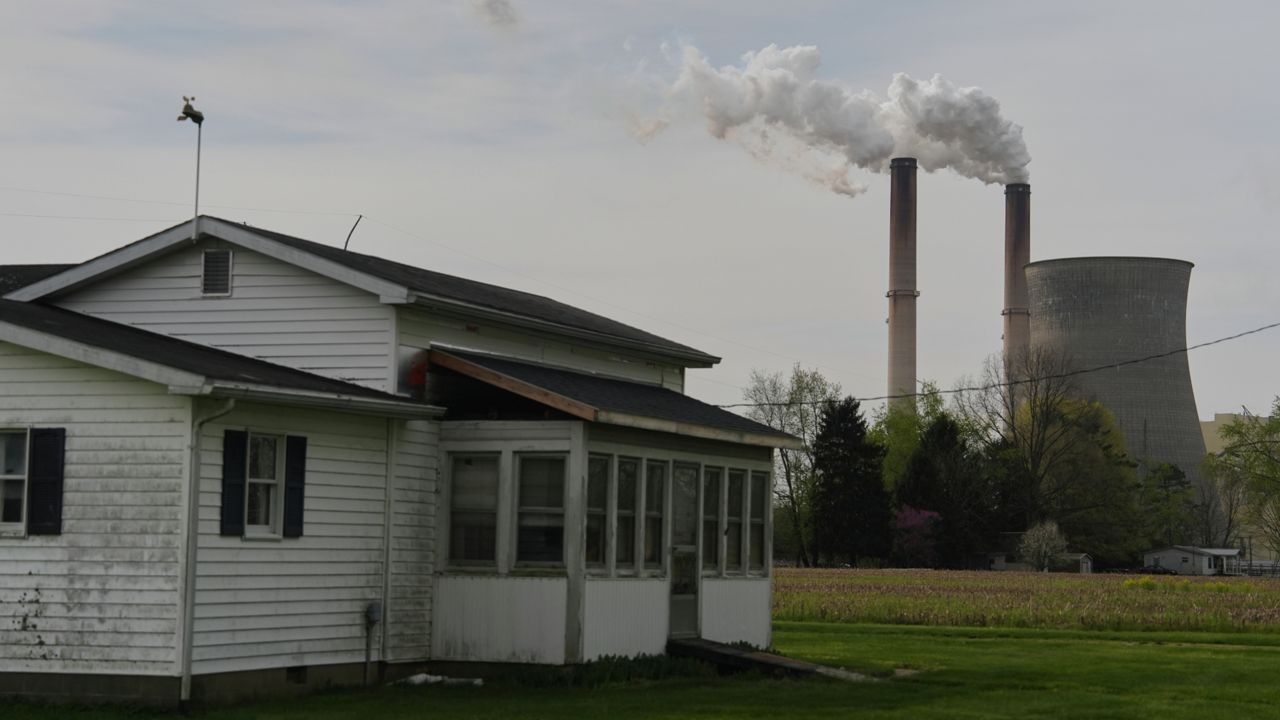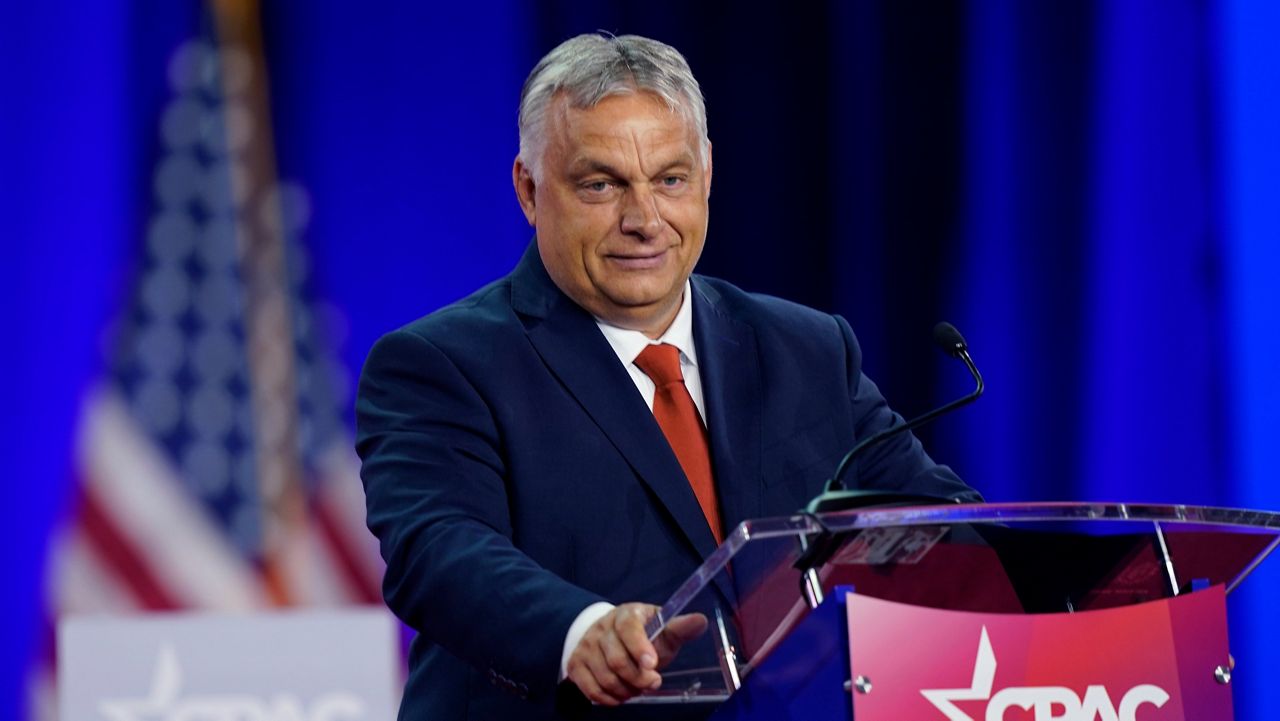For two days late last month, officials with Arizona’s attorney general’s office attempted to find Rudy Giuliani in New York City to serve him with notice he had been indicted on conspiracy, fraud and forgery charges.
The former mayor of New York City, who Arizona officials believed was recording videos from his Manhattan apartment at the time, could not be found. As of Wednesday, he remained the only one of the 18 defendants yet to be served in the case, which centers on a scheme to steal the state’s Electoral College votes for then-President Donald Trump.
“Agents spent two days (April 25-26) in New York City attempting to serve the defendant at his residence. Multiple attempts to contact the defendant by telephone to arrange service were also unsuccessful. The defendant was also sent service via certified mail, we have not received notification that attempt was successful either,” wrote Richie Taylor, the communications director for Arizona Attorney General Kris Mayes, in an email.
Taylor said the officials spoke with someone working the front desk at Giuliani’s building, but were told the worker was not allowed to receive service of documents. The worker did not deny Giuliani lived in the building.
The summons is intended to inform Giuliani that he has been criminally charged and must appear in court in Arizona on May 21. Taylor could not confirm what the next steps are if Giuliani continues to remain in the wind, noting only “that is to be determined.”
Giuliani’s advisor and frequent spokesperson Ted Goodman did not return a call or a text message requesting comment. Giuliani, who served as a political advisor to Trump and as his personal attorney, could not be immediately contacted himself.
But on Tuesday night, Giuliani addressed reports of him evading Arizona officials in a live stream, taunting prosecutors for their inability to find him.
“Arizona officials say they can't find Giuliani. So this is perfect evidence that if they're so incompetent, they can't find me, they also can’t count votes correctly,” Giuliani said, falsely repeating debunked conspiracy theories about the 2020 election in Arizona. “These are the same Arizona people who counted the vote, who are indicting me, who are framing me, and they can't find me. They can't find me. How do you have any confidence in the fact that they can count the vote accurately?”
According to the indictment, Giuliani “spread false claims of election fraud in Arizona and nationally,” presided over a “hearing” in Phoenix shortly after the 2020 election to promote those false claims, “pressured the Maricopa County Board of Supervisors and Arizona legislators to change the outcome of Arizona's election, and he was responsible for encouraging Republican electors in Arizona and in six other contested states to vote for Trump-Pence on December 14, 2020.”
Together with other Trump allies, campaign aides and administration officials -- including White House Chief of Staff Mark Meadows, who is also indicted -- Giuliani worked to form a slate of false electors who would vote for Trump instead of now-President Joe Biden, who in reality had won the 2020 election in Arizona and the Electoral College broadly. Trump, who faces four criminal prosecutions of his own across the country, was not indicted in Arizona, but is named as “Unindicted Coconspirator 1” by Arizona prosecutors.
Giuliani, who once led racketeering prosecutions of mobsters as a U.S. Attorney in New York, was also indicted alongside his boss in a racketeering case in Georgia connected to similar efforts to overturn the 2020 election there.
Once championed as “America’s mayor” for his leadership after the Sept. 11, 2001, attacks, Giuliani has seen his legal and professional troubles mount due to his work on Trump’s behalf. Last week he was fired from his radio hosting gig on WABC Radio for refusing to stop spreading discredited 2020 election claims.
“We warned him once. We warned him twice. And I get a text from him last night, and I get a text from him this morning that he refuses not to talk about it,” station owner John Catsimatidis, a Republican billionaire, told the New York Times. “He left me no option.”
And on Tuesday, a judge overseeing Giuliani’s bankruptcy case said he was “disturbed” by a lack of progress the former mayor had made on sorting out his finances and refused to lift a legal barrier that has kept Giuliani from appealing a $148 million defamation judgment. The judgment came after two former election workers successfully sued him for spreading a false conspiracy theory about their role in the 2020 election.
The Associated Press contributed to this report.








